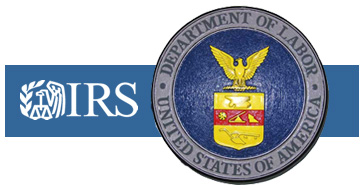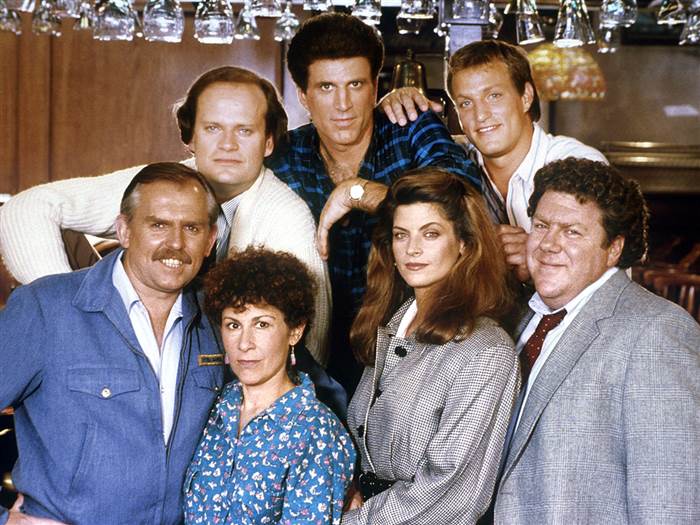|
|
The Complete And Total Worthlessness Of The 401(k) Fiduciary Warranty.
Like I always say, worthless.
 I am a firm believer in the idea that what you see is what you should get. If you're promised the moon, anything short of it is wrong. Some of the biggest disappointments in my life are when I was sold a bill of goods that just didn't add up. Law school and a job at a certain law firm comes to mind where what was delivered was way short of what was promised. I never did get a bonus for those fees I brought into that law firm. I like to tell things like it is. That's why many of the large retirement plan providers out there have a thing against me because I'm going to burst their bubble by telling you that there is no such thing as a unicorn and that the fiduciary warranty they have been promoting is most likely worthless. This article is about the worthlessness of 401(k) Fiduciary Warranties and how plan sponsors should avoid relying them as a form of liability protection. I am a firm believer in the idea that what you see is what you should get. If you're promised the moon, anything short of it is wrong. Some of the biggest disappointments in my life are when I was sold a bill of goods that just didn't add up. Law school and a job at a certain law firm comes to mind where what was delivered was way short of what was promised. I never did get a bonus for those fees I brought into that law firm. I like to tell things like it is. That's why many of the large retirement plan providers out there have a thing against me because I'm going to burst their bubble by telling you that there is no such thing as a unicorn and that the fiduciary warranty they have been promoting is most likely worthless. This article is about the worthlessness of 401(k) Fiduciary Warranties and how plan sponsors should avoid relying them as a form of liability protection.
For the article, click here.
|
|
|
Mistakes A Plan Sponsor Should Correct Before An IRS or DOL Audit.
Stuff to fix.
 I have been in the retirement plan business for over 17 years and I have met too many plan sponsors who don't care that their plan isn't being run correctly. What makes them eventually care is when they are audited by the Internal Revenue Service (IRS) and/or the Department of Labor (DOL) and get penalized for those very mistakes that plan providers had already pointed out. A few years back, the DOL penalized employers $1.69 billion dollars for problems they had with their retirement plans. The point of correcting plan errors is for a plan sponsor is to correct it before the DOL and/or the IRS finds it. So this article is about plan errors that plan sponsors should correct before the government does. I have been in the retirement plan business for over 17 years and I have met too many plan sponsors who don't care that their plan isn't being run correctly. What makes them eventually care is when they are audited by the Internal Revenue Service (IRS) and/or the Department of Labor (DOL) and get penalized for those very mistakes that plan providers had already pointed out. A few years back, the DOL penalized employers $1.69 billion dollars for problems they had with their retirement plans. The point of correcting plan errors is for a plan sponsor is to correct it before the DOL and/or the IRS finds it. So this article is about plan errors that plan sponsors should correct before the government does.
To read the article, please click here.
|
Features That Turn Your 401(k) Plan Into A 401(k) Disco.
And remember Disco Demolition Night.
 There is a difference between throwbacks vs. vintage clothing. A throwback is a sports uniform styled to resemble the uniforms that a team wore in the past. Vintage clothing are actual clothing garments from another era. I wear throwback jerseys from Mitchell & Ness and I just think wearing the actual old uniforms that a former player wore is kind of icky since I never wore hand me downs as a kids (I was the only boy in the family). Regardless of whether it's throwback or vintage, a 401(k) plan with archaic provisions and features isn't something to revere, it's something to abhor since the plan sponsor could potentially be on the hook for liability or have a plan that isn't used to its fullest potential to help plan participants. So this article is about 401(k) provisions and features that make a plan look like a disco and a disco today isn't something that is in style. There is a difference between throwbacks vs. vintage clothing. A throwback is a sports uniform styled to resemble the uniforms that a team wore in the past. Vintage clothing are actual clothing garments from another era. I wear throwback jerseys from Mitchell & Ness and I just think wearing the actual old uniforms that a former player wore is kind of icky since I never wore hand me downs as a kids (I was the only boy in the family). Regardless of whether it's throwback or vintage, a 401(k) plan with archaic provisions and features isn't something to revere, it's something to abhor since the plan sponsor could potentially be on the hook for liability or have a plan that isn't used to its fullest potential to help plan participants. So this article is about 401(k) provisions and features that make a plan look like a disco and a disco today isn't something that is in style.
To read the article, please click
here.
|
|
|
|
IRS releases guidance on mid-year amendments to Safe Harbor 401(k) Plans.
It finally makes sense.
 A few years back, an Internal Revenue Service (IRS) official opined that the IRS would not look favorably on safe harbor 401(k) plan making any amendments mid-year except in some circumstances such changing a trustee, changing a plan vendor, loosening eligibility requirements, and changing a plan year as long as the safe harbor plan year was not affected. There was no guidance on the matter and the people who attended the conference where that official said it were very concerned with the statement. Many read too much into the statement.
While I usually have a Justice Scalia interpretation of the Code, ERISA, and the regulations, some statement by an IRS official at a regional ASPPA conference doesn't hold much weight with me. I took the position that I would allow amendments to a safe harbor 401(k) mid-year as long as it does not impact the safe harbor formula in place (except as previously allowed by other guidance) or that would restrict the ability to get a safe harbor contribution or increase or implement a discretionary matching contribution. Many third party administrators (TPAs) too a very stringent reading of the IRS official's statement and stated they wouldn't even allow a change of the profit sharing contribution formula or even add an in-service distribution at age 59 ½ mid-year. I think it was absolutely preposterous and was hoping for some actual, reasonable IRS guidance.
Common sense came 3 ½ years later in the form of Notice 2016-16 which states which amendments mid-year would not be allowed and safe harbor notice changes that must be made to alert plan participants of any amendments to the safe harbor notice.
Participants need a reasonable time to be alerted to any mid-year changes to the Plan within 30-90 days of the change as well as an opportunity to change their deferral elections before the change is made.
The notice banned these types of mid-year changes:
1) a change to increase the years of service required to fully vest in safe harbor contributions under a Qualified Automatic Contribution Arrangements (QACA) .
2) a change to further restrict the group of employees eligible to receive safe harbor contributions. However, eligibility changes with respect to employees who are not already eligible to receive safe harbor contributions under the plan are allowed (such as loosening eligibility requirements).
3) a change to the type of safe harbor plan.
4) a change to modify (or add) a formula used to determine matching contributions if the change increases the amount of matching contributions. This includes discretionary matching contributions. A limited exception does apply if at least 3 months prior to the end of the plan year, the change is adopted and the updated safe harbor notice and election opportunity are provided, and if the change is made retroactively effective for the entire plan year.
|
Experience can mean a lot of things
.
It means many things.
 I always talk about how plan sponsors need to work with experienced financial advisors, third party administration (TPA) firms, and ERISA attorneys on their plan needs.
Like with reasonable fees, I believe that the term "experienced" is vague. Experience doesn't just mean years of service as a service provider. Years of experience are just one measure of retirement plan experience. Retirement plan experience could be number of plans that a provider is currently working on or even something as performing good practices in an industry where not many providers do that. So I was kind of taken back when a financial advisor I assumed that I said experience means years because this advisor (who has made a name for himself as being excellent) protested that he had 3 ½ years experience and his commitment to his clients in doing the right thing was better than what many with 35 years experience as a financial advisor who put their needs ahead of the client. I told him that he was preaching to the choir because I've been there and done that.
I worked at a law firm for 2 ½ years. You had some law firm partners who were excellent and then you had some that you knew that either fell through the cracks or more likely, were "juiced in" because a senior partner took their fancy. At one point, our firm had about 5 ERISA partners. All of these partners were from the multiemployer world (union Taft Hartley plans), which is a different creature from the single employer world. I bet none of these attorneys knew what revenue sharing was or how a single employer 401(k) plan because one of these partners was our 401(k) plan's trustee and he never bothered to hire a financial advisor or review investments with the other two trustees or have participants in the plan get investment education that only increased the law firm's fiduciary liability as a plan sponsor. So if you sponsor a 401(k) plan, would you hire one of these ERISA attorneys? At another firm, I once worked for one of the best ERISA attorneys
in the country (in the multiemployer world) and didn't know what revenue sharing was an why plan sponsors need to be concerned about administrative costs.
The same can be said of financial advisors. A financial advisor may have a billion dollars or management or have been in the business for 30+ years, but it's irrelevant if they don't have more than one retirement plan on their books. Even if they have a load of retirement plans on their books, it doesn't mean anything if they don't help their clients with an investment policy statement or giving education to participants in participant directed 401(k) plans.
Same with TPAs. Some can't handle daily valued 401(k) plans, some can't handle defined benefit plans, and some can't handle any retirement plan outside of the box like new comparability form of allocation.
The point is that levels of experience may vary and it's important to find the retirement plan provider with the right experience. It has to be the right fit for the plan based on the plan's size and type. How do you that? Nothing beats word of mouth and asking the potential retirement plan provider the right questions, especially if they have the experience to handle your type of plan.
|
|
April 30th is the deadline.
 My favorite professor at law school Bernie Corr said it best when he joked that the Bankruptcy Code changes to keep bankruptcy attorneys employed.
I'm sure people think that the Internal Revenue Service (IRS) requires retirement plans to be restated every 6 years to keep ERISA attorneys like me employed.
Maybe that's true in part, but the Internal Revenue Code consistently changes when it comes to retirement plans, so the IRS requires retirement plans to be restated every 6 years.
If you sponsor a defined contribution plan using a ready-made prototype or volume submitter plan, you need your plan to be restated by April 30
th. If you fail to amend and restate your plan by that deadline, your plan will be penalized on audit and risk disqualification of the plan which would mean that all benefits would be immediately taxable to plan participants and business deductions for contributions disallowed. So get that plan restated.
If you need a plan restated, I know a pretty decent ERISA attorney (cough, cough) who can restate your plan document at a reasonable, flat fee. Give me a call.
|

The Rosenbaum Law Firm Review, March 2016
, Vol. 7 No. 3
734 Franklin Avenue, Suite 302
Garden City, New York 11530 Phone 516-594-1557 Fax 516-368-3780
Attorney Advertising. Prior results do not guarantee similar results.
Copyright 2016, The Rosenbaum Law Firm P.C. All rights reserved.
|
|
|
|
|
|
|
| |
|